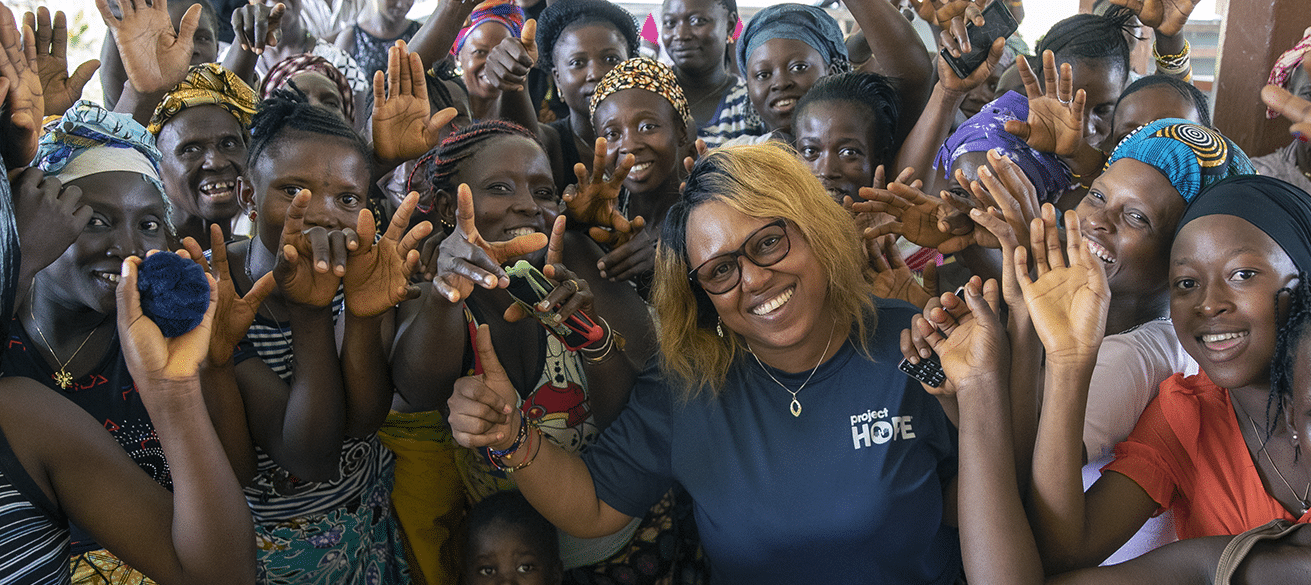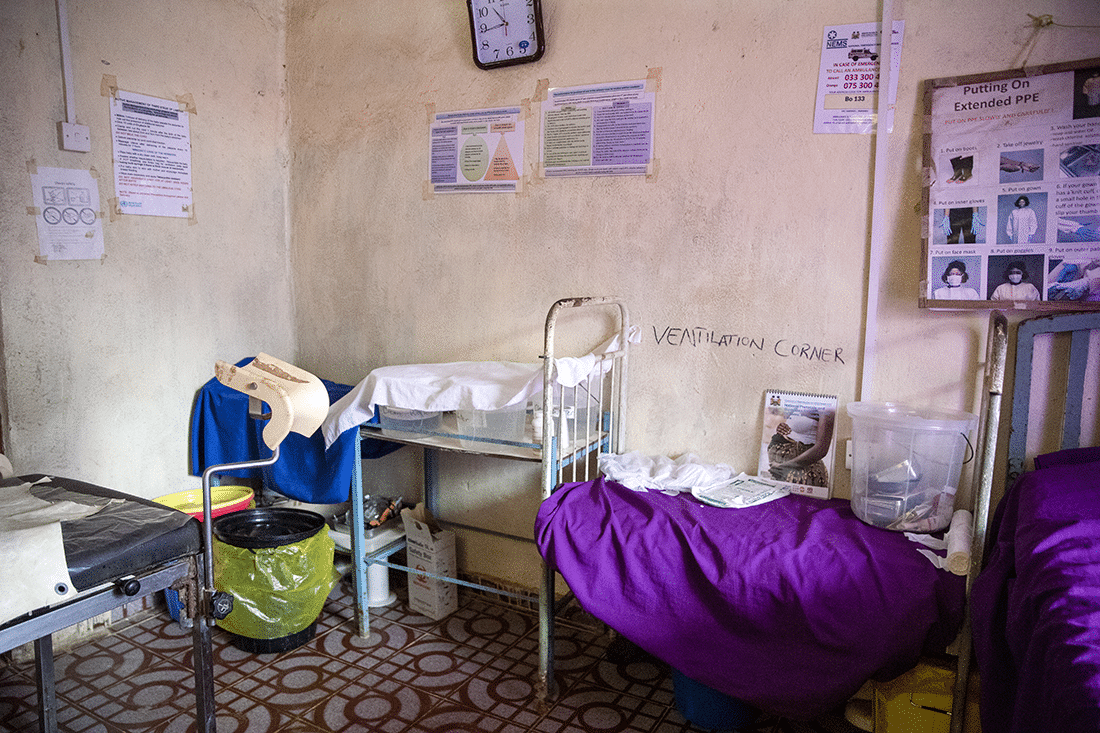
A ‘Proper Degree’ Saves Babies, Grows Careers in Sierra Leone
Project HOPE helps educate a new cadre of nurses in neonatal care
The Ebola outbreak of 2014 decimated the already fragile health system in Sierra Leone – many doctors and other health providers died, and others left the country in the wake of the epidemic. Today, there are fewer than 250 doctors serving a nation of 7 million people. This lack of trained health professionals has a devastating impact: Sierra Leone has one of the highest maternal mortality rates in the world, and infant mortality is approximately 82 per 1,000 births.
Our work in Sierra Leone
Project HOPE’s work in Sierra Leone focuses on the critical issue of increasing access to maternal and neonatal care. Our impact will soon expand with the launch of a specialized advanced neonatal nursing education program: the Neonatal Nursing Education Initiative.
During a recent visit to Sierra Leone, Dr. Tom Kenyon, Project HOPE’s chief executive officer and chief medical officer, met with Hossinatu Kanu, chief nursing and midwifery officer in Sierra Leone’s Ministry of Health and Sanitation, to discuss the launch of the program. Kanu was relieved to hear that this program was different from many others in that, upon completion, nurses will not only have advanced skills that will make them more effective, but they will also earn degrees that will help them join a highly qualified and much needed workforce.
“My nurses have piles of certificates, but now they will finally get a proper degree. In-service training doesn’t advance them at all, but when they have a diploma, their careers benefit.”
Partnerships are key
Partnerships with ministries of health and governments where we work are key to developing programs that deliver sustainable impact. In March, Fatima Maada, first lady of Sierra Leone, met with Project HOPE’s Board of Directors and expressed immense gratitude for our lifesaving work during the Ebola crisis. She commended our focus on maternal and child health care and was eager to strengthen the partnership between Project HOPE and the government of Sierra Leone. The Neonatal Nursing Education Initiative is an important step in that direction.
Although Kenyon acknowledges the importance of existing workshops and hands-on, in-service training, he knows that a new cadre of nurses needs to be recruited and offered formal specialized training on how to care for small and sick newborns. Ongoing resources will also enable the nurses who complete the training to give consistent high-quality, lifesaving care.
Sierra Leone faces enormous health challenges
- The newborn mortality rate is approximately 82 per 1,000 births. (According to the U.S. Centers for Disease Control and Prevention, the infant mortality rate in the United States in 2017 was 5.8 deaths per 1,000 live births.)
- 80 percent of newborn deaths are a result of pre-term birth, low birth weight, asphyxia and newborn sepsis.
- Few facilities meet the minimum standards for basic emergency newborn care, in terms of staffing, equipment or drug supplies.
- Health workers are not adequately trained to provide quality care for pre-term and low birthweight babies.
- Local communities generally mistrust health facilities due to their perceived handling of the past Ebola crisis.

“Overall, Sierra Leone has only 165 doctors for the entire country of about 7 million people,” says Kenyon. “It’s really shocking.”
Kenyon recalls a conversation with a well-trained medical superintendent and OB/GYN in Sierra Leone who reported that there was no anesthesia available in the district hospital where he works, which serves 3,000 people. Moreover, says Kenyon, electricity was not reliable, and power outages meant the difference between life and death for infants relying on lifesaving equipment. “Power surges were blowing up the equipment, so we installed a solar unit with UNICEF to keep the electricity going in the newborn care unit.”
“Sierra Leone has one of the weakest health systems in the world. They are really struggling day to day, but they’re on a positive trajectory.”
Project HOPE works with local and international stakeholders, training institutions and relevant professional associations to implement neonatal nursing program development, skills and competency training resulting in post-basic certificates, masters degrees and specialty nursing degrees. We are currently providing neonatal care training in Sierra Leone, Ethiopia, Malawi and the Dominican Republic. Beyond the clear benefit to the nurses, the ultimate goal is to save more lives of newborns.
“Sierra Leone has one of the weakest health systems in the world,” says Kenyon. “They are really struggling day to day, but they’re on a positive trajectory.”
Project HOPE has worked in Sierra Leone since 2014, in response to a call for assistance in containing the Ebola outbreak. Today, our programs focus on improving maternal, neonatal and child health.
How you can help
Make a lifesaving gift to support our work now and for the future at projecthope.org/donate.
Are you a health-care or other professional who would like to learn more about volunteering abroad with Project HOPE? Learn more about our volunteer program and join our volunteer roster.
Stay up-to-date on this story and our lifesaving work around the world by following us on Facebook, Instagram, LinkedIn and Twitter, and help spread the word by sharing stories that move and inspire you.